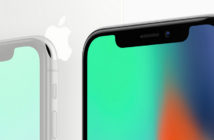By Clémentine Fournier, regional vice president for Africa at BICS
Nowhere in the world has the mobile revolution had such a profound impact on society as in Africa. From the launch of mobile data services stimulating business in areas lacking fibre infrastructure, to 2G services connecting people over distances for the first time and providing banking services in less developed parts of the continent, the availability of mobile services has made a vast difference to lives far beyond the provision of basic communication services.
Underlying these socially important developments must be reliable and robust infrastructure. With so many societal elements relying on the delivery of wireless connectivity, the first priority for carriers in the area was to protect these systems from the extreme geographical and environmental factors, which are prevalent in so many areas. Now much of this structure has been stress-tested and strong back ups are in place within the most advanced African markets, these providers are looking towards more advanced service provision, such as higher-bandwidth services for business users and international roaming services.
In many areas however, progress remains at a slow pace and there are still many challenges that need to be met to create the consistent, widespread connectivity needed to enable reliable banking and social media services. This is often addressed with the sale of handsets with a dual-SIMs to ensure services are available whenever required. However, with multiple connection options in the same handset, it is even more vital that operators have thorough interoperability facilities in place, especially when looking at providing customers with cellular service outside of their home market.
Creating a stronger Africa
Wireless connectivity has brought African society forward many years in a very short space of time, offering a secure backbone to connect developing countries to peers around the world. This opens new trade routes in addition to providing citizens on the continent with advanced social and societal facilities. Data has completely transformed connectivity around the world, and significant investments by authorities and operators in developing markets to launch next generation data services has enabled these countries to close the gap between themselves and more developed ones.
Outside of data services, SMS is vital in markets such as Africa, Latin America and parts of Asia-Pacific where companies use SMS to both reach customers and as a way of delivering receipts, verification messages and making financial transactions. Social media platforms are also utilising A2P SMS to verify customers and as a channel for marketing and advertising.
The case for mobile money applications in Africa, and similar markets, is well known with these services now widely used as primary banking services. However the increased availability of advanced feature phones and smartphones has created the facilities for a number of other applications, from advisory services for everything from healthcare to agriculture.
Latin America and Asia-Pacific
Although Africa snatches many of the headlines in the international media, the inclusive power of mobile extends well beyond the developing markets on this continent with similar services revolutionising lives in Latin American areas and in emerging markets in parts of Asia-Pacific.
Within Latin America, major infrastructure projects are now underway to expand the availability of high quality wireless internet services and develop roaming and traffic flows within the region, and to customers from the region travelling into North America and beyond. Here, communication app providers are extremely popular and operator-led services through rich communication services (RCS) are available in major markets around the continent. Again, region-specific apps are being launched to meet the need of local communities and provide facilities to create a stronger, more connected society.
Going forward, as LTE becomes the de-facto standard for connectivity across all areas, we can expect a greater range of innovative wireless services to be launched, further increasing inclusion and social mobility around the world.
BICS is a global voice carrier and the provider of mobile data services.





